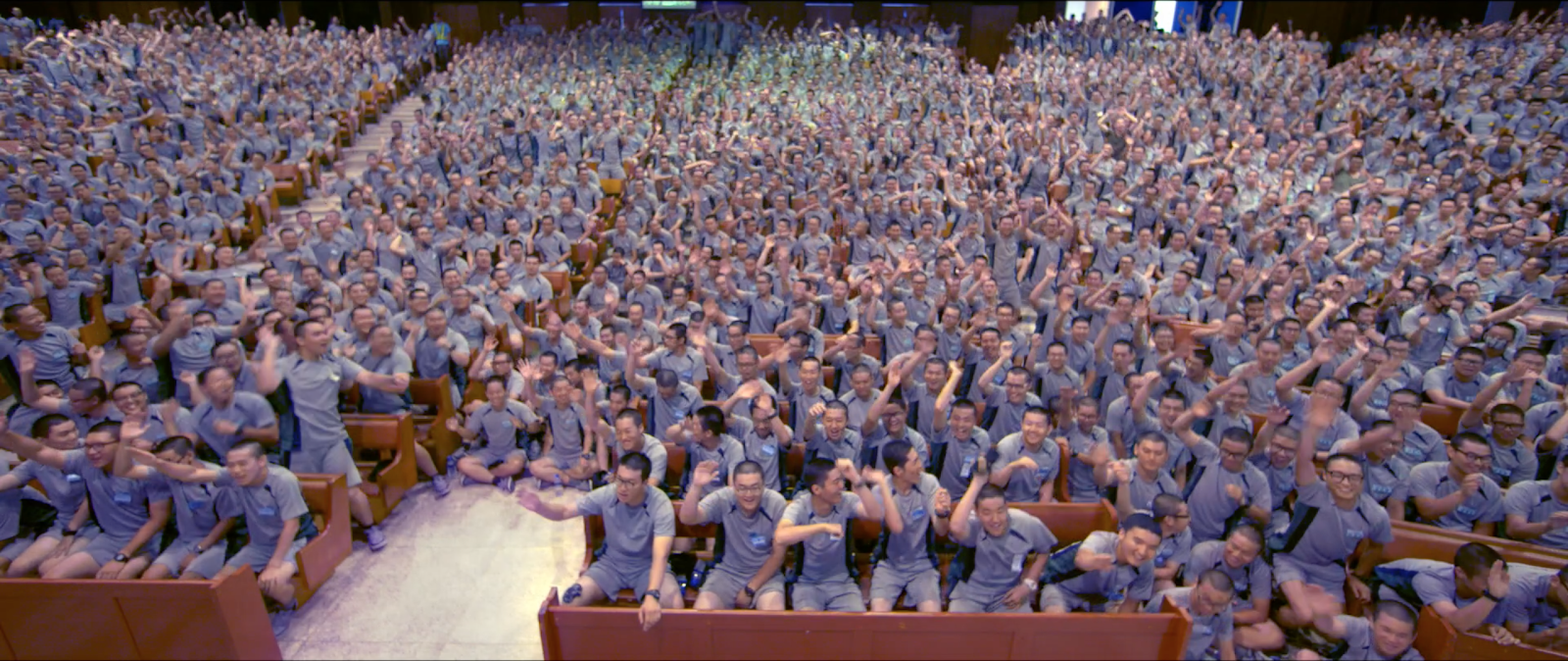(THIS ARTICLE IS MACHINE TRANSLATED by Google from Norwegian)
Kelvin Kyung Kun Parks Army opens with a powerful scene in which military exercises are presented to a feathered audience and opera-like hymns plummet the drone from the artillery – a re-creation to pay tribute to South Korean heroism during the war that tore the Korean peninsula in half. The scene suggests the central theme of the film: show.
The mandatory military service is a transitional rite in South Korea, the director / narrator voice explains in the film's first sequences while reflecting on when he himself performed his patriotic duty. He goes on to say how his views have changed when he returns with a camera ten years later to follow fresh recruiter Woochul's military service.
Millions of people sacrificing their homeland produce a strong sense of community.
Through elegantly composed images and an exquisite soundtrack, Park dramatizes daily military exercises while commenting (and supplementing with his own memories) what is happening in front of the camera, the differences between the present and the present.
Penalties
Today's military exercises look almost comfortable, Park observes. (Could the lack of punishment of the soldiers be due to his presence with the camera?)
He recalls that he once saw a UFO, and thinks that UFOs are really "subconscious projections from many people" – the individual's subconscious in combination with mysterious values project light into the sky, he explains. This mysterious phenomenon is further amplified when he later in the film discovers that similar UFO sightings have been made by several soldiers, often just before leaving the military.
Mandatory military service is a transitional rite in South Korea
A trio of cheerful youngsters perform with a Christian rock song for the male troops. From his bird's eye view, Park captures a sea of identically dressed men with waving arms as if they were at a concert or in a sports arena. The narrator voice worryingly admits that when he finally took charge of a military unit, he himself became "the same type of man he hated". Is it so fast to be corrupted by power, or is it a slower and more imperceptible process? After all, i military "Training happens through the body, like when practicing an instrument," Park notes. The training is perceived as "practicing for a performance" – a performance with the enemy on the other side of the demilitarized zone.
Nervous nations
Another overview scene shows the recruits as they strive to perform exercises in sand. The beauty of Park's precisely selected images transforms the documentary almost imperceptibly into an abstract, philosophical meditation on how to continually prepare for war.
"A great musician moves the audience when he forgets what he does and gets completely engrossed in the work," Park points out. This makes the viewer aware that countries with high requirements military service – South Korea, but also similar nervous nations, for example Israel – forever doomed to balance on a double-edged sword.

Undoubtedly, millions of people who sacrifice for the homeland give a strong sense of community and create a collective unity that provides tranquility, but there is also a form of group thinking that can destroy the individual. In this sense, the film deals with a sociological phenomenon that is rarely portrayed in film. South Korea (as well as Israel and Singapore) with a long military service of more than 18 months is in the company of nations that are not exactly known for violating the rights of the individual and its inhabitants.
Depressed recruit
When it comes to military service, South Korea has more in common with dictatorships like Angola, Turkmenistan and Iran (as well as the arch-enemy of North Korea) than with other countries. South Korea is known for its K-pop and kimchi [fermented vegetables, ed.] Here in the West, but the Kim dynasty threatens just as much no matter where on the peninsula one is. This tension is made clear as the young recruit Woochul sinks into depression and then becomes suicidal. Park later reflects that even when man longs for freedom, too many choices can make us depressed.

Woochul's mental condition worsens, and a captain orders Park to interrupt filming. Park is a determined director and, surprisingly enough, manages to persuade a higher up in the military hierarchy to allow him to continue filming.
The collective memory, whether it's about it Korean War or the Holocaust, often results in a traumatic identity, which inevitably affects the psyche of any youth whose destiny it is to seize weapons for their country. Although the armament is sometimes only used in conjunction with performances.
Translated by Iril Kolle


